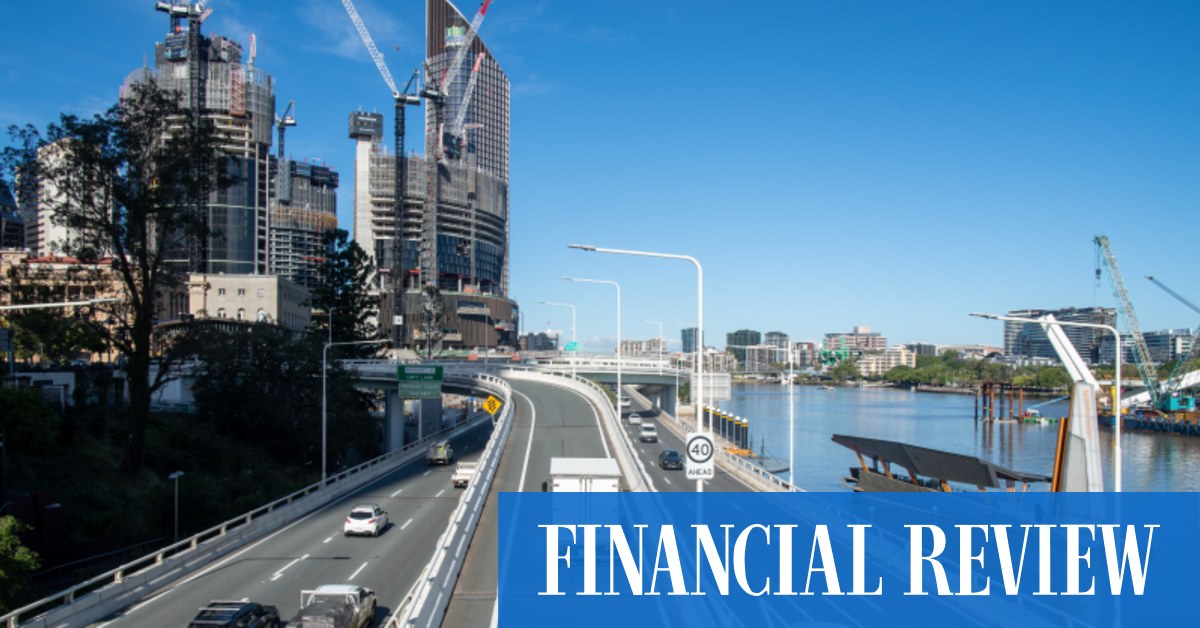The percentage of people working only in the office drops to 18 per cent from 47 per cent previously, while the share of hybrid workers jumps to 61 per cent from 33 per cent previously, according to UBS’s forecasts.
The number of people who work only from home edges higher than 21 per cent from 20 per cent previously.
A decline in people driving to work will hit Transurban’s proportional revenue (which reflect income from its toll roads) by about $110 million compared with pre-pandemic levels, excluding income from new roads that opened after December 2019, UBS says.
However, Transurban’s ability to raise toll fares in line with inflation, stronger truck traffic and the opening of new toll roads such as Sydney’s new M5 tunnels (which started taking traffic in mid-2020) are expected to lift the company’s total proportional revenue by more than $1 billion to $3.8 billion by fiscal 2024 compared with fiscal 2019, the bank says.
Transurban CEO Scott Charlton has also said some people who only go into the office two or three days a week are favoring driving their cars over public transport.
The toll road group, which reports its annual results on August 18, has not yet released traffic data for the most recent financial quarter ended June 30. But data for the three months ended March 31 showed its like-for-like traffic flows (excluding new toll roads that opened during the pandemic) were still below 2019 levels in all cities except Brisbane.
Traffic in Sydney and Brisbane was partially hampered by the east coast floods, as well as soaring fuel prices.
UBS argues the increase in people choosing to drive instead of taking the train or the bus is temporary and that people may be inclined to return to public transport to save money because of the rising costs of groceries and energy, while fuel costs also remain high.
Its estimates for Transurban’s fiscal 2024 traffic flows are now about 5 per cent lower than its February 2020 forecasts.
The bank has also cut its fiscal 2023 office income forecasts for property groups Mirvac and Dexus, forecasting that there will be contracted vacancies of 8 per cent to 13 per cent in the office market compared with pre-COVID-19 levels.
“We are cautious on office given the risks are skewed to the downside and the work from home trend appears more persistent and structural than first thought,” UBS said.
more to eat
